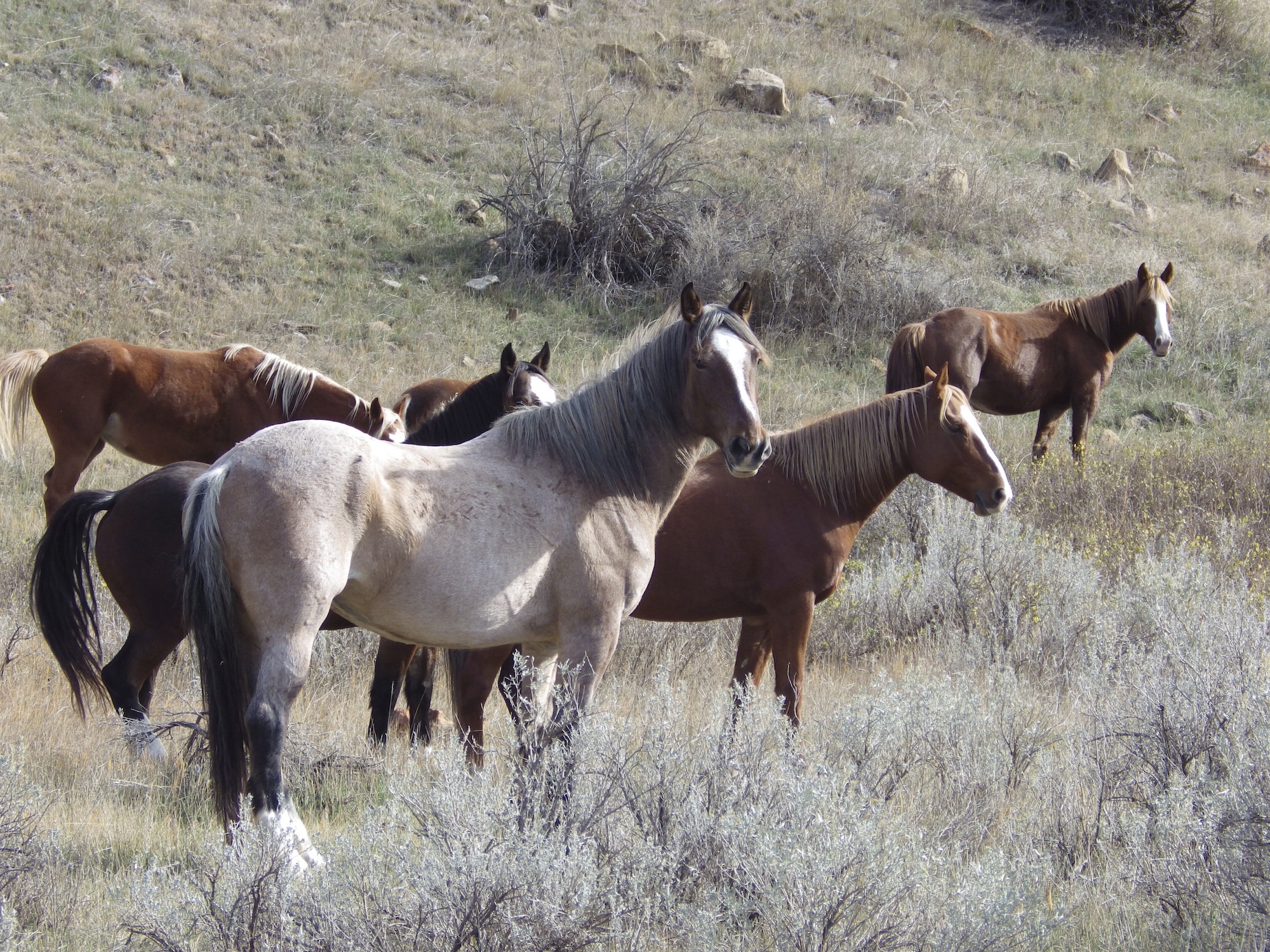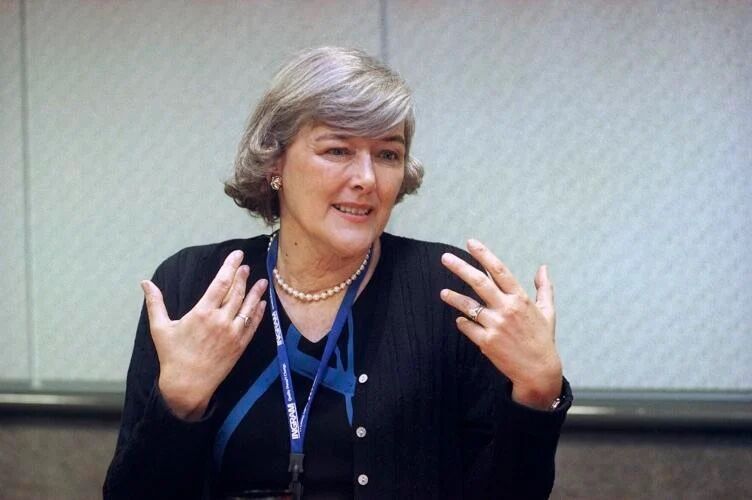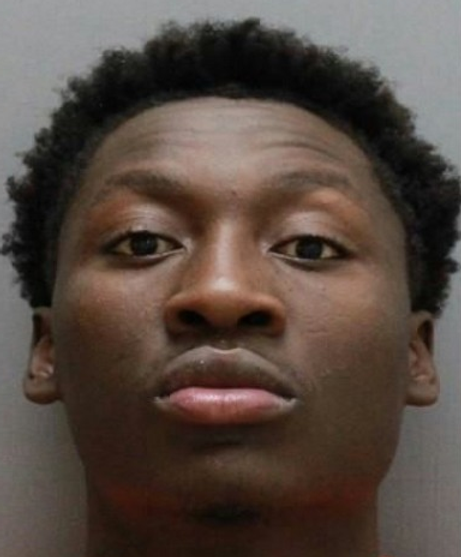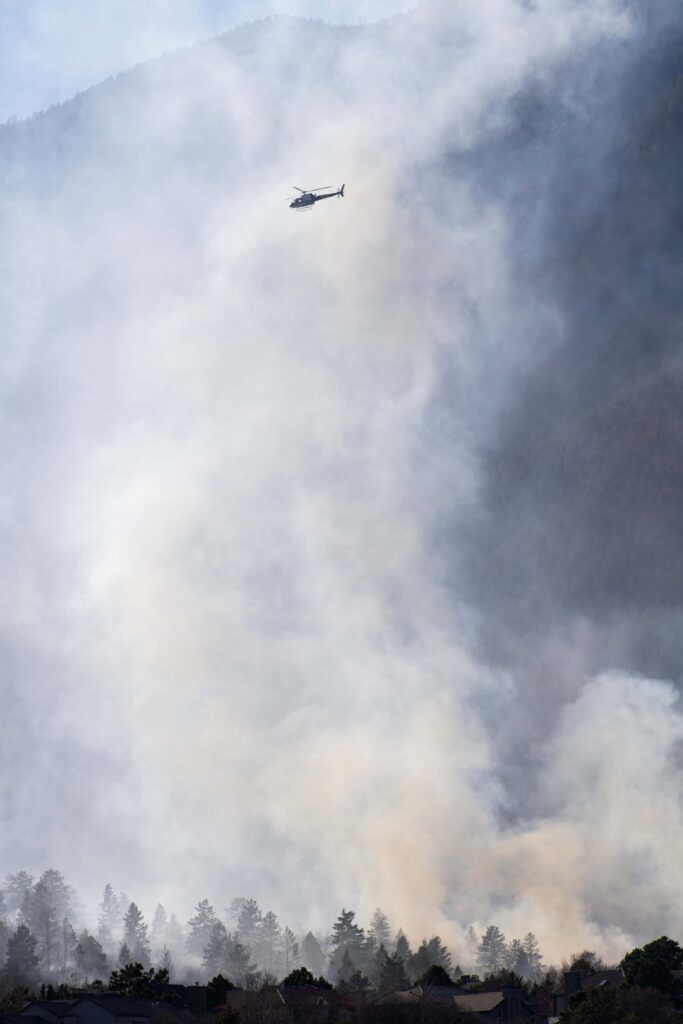Wild horses facing removal in North Dakota park get another ally in Congress | OUT WEST ROUNDUP
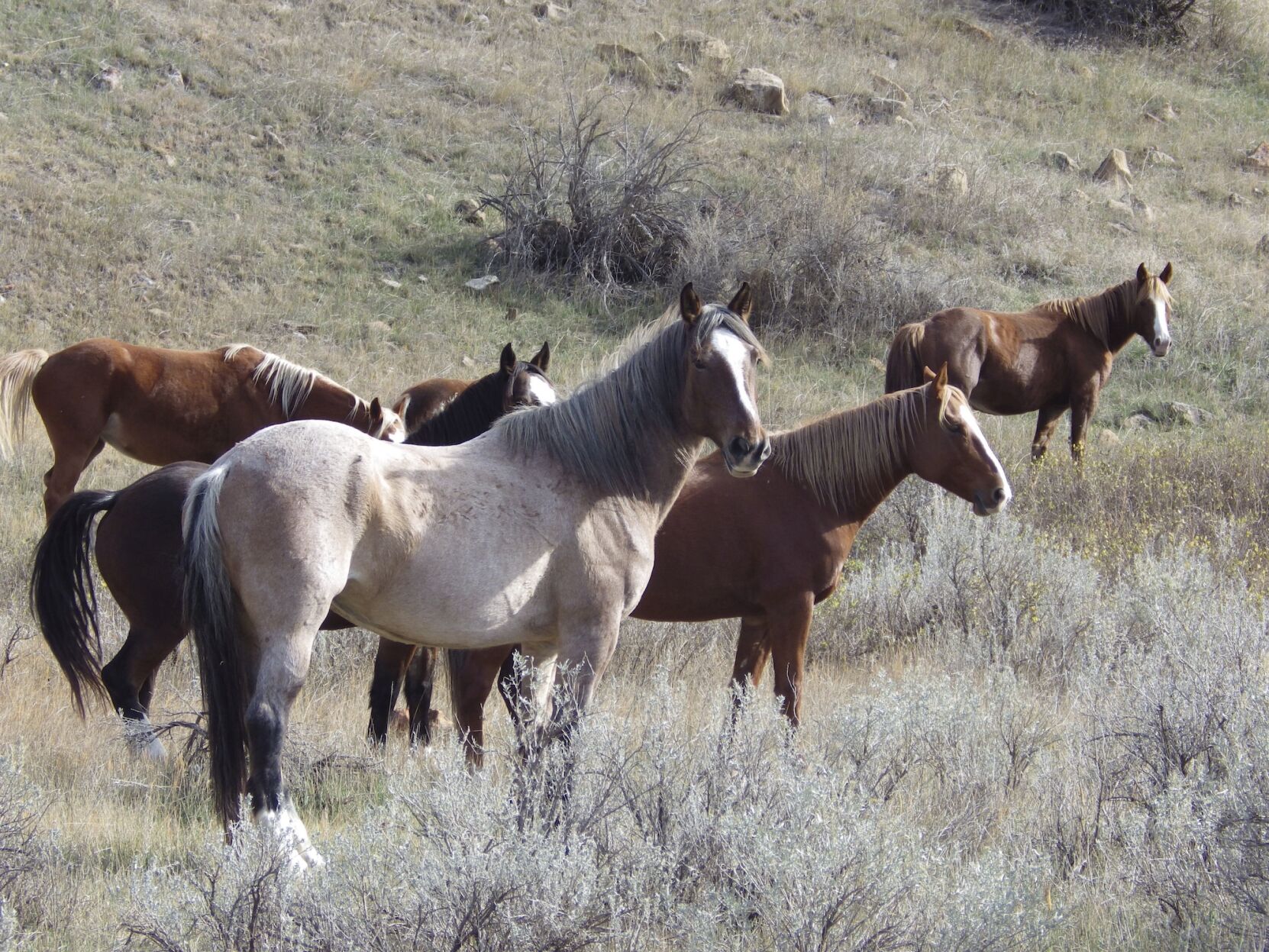
NORTH DAKOTA
Wild horses facing removal find ally in Congress
BISMARCK – Advocates for some 200 wild horses roaming North Dakota’s Theodore Roosevelt National Park are hoping a signal of support from Congress will prevent the removal of the beloved animals from the rugged landscape.
A National Park Service decision is expected around April as to the horses’ future in the park’s colorful, rolling Badlands. It’s part of an ongoing process to craft a park management plan for “livestock” – a term horse advocates reject.
Republican Sen. John Hoeven ‘s legislation, tucked in the annual Interior and Environment budget bill that Congress passed and President Joe Biden signed, strongly recommends that the Park Service keep the horses in place. It also signals a potential future action that would deny any funding intended to remove them.
A remaining question is how many horses would ensure the long-term preservation of the herd. Advocates want to see a genetically viable herd of at least 150 horses to avoid inbreeding issues. Park Superintendent Angie Richman has said the horses, if they ultimate stay, would still have to be reduced to 35 to 60 animals under a 1978 environmental assessment.
Advocates have feared a predetermined ouster of the horses, whose predecessors were accidentally fenced into the park in the 1950s and were subject to subsequent roundups.
The horses’ origins include Native American tribes, area ranches and domestic stallions introduced to the park from the late 1970s through the 1990s, said Castle McLaughlin, who researched the horses as a graduate student in the 1980s.
ARIZONA
Biden hails $8.5 billion investment in chipmaker Intel
CHANDLER – President Joe Biden on March 20 celebrated an agreement to provide Intel with up to $8.5 billion in direct funding and $11 billion in loans for computer chip plants around the country, talking up the investment in the political battleground state of Arizona and calling it a way of “bringing the future back to America.”
The Biden administration has predicted that the cash infusion should help the U.S. boost its global share of advanced chip production from zero to 20%. The Democratic president highlighted the investment while visiting Intel’s Ocotillo campus in Chandler, Arizona, where he inspected silicon wafers and expressed amazement at how thin the chips are.
In remarks after a tour, Biden pivoted to the impact his policies could have on the U.S. economy as he tries to translate his policy wins into a political boost ahead of November’s election. Intel plans to invest in facilities in Arizona, Ohio, Oregon and New Mexico, with some of the government money helping to support workforce development.
The U.S. designs advanced chips, but its inability to make them domestically has emerged as a national security and economic risk.
The funding announcement came amid the heat of the 2024 presidential campaign. Biden has been telling voters that his policies have led to a resurgence in U.S. manufacturing and job growth. His message is a direct challenge to former President Donald Trump, the presumptive Republican presidential nominee, who raised tariffs while in the White House and wants to do so again on the promise of protecting U.S. factory jobs from China.
Intel’s projects would be funded in part through the bipartisan 2022 CHIPS and Science Act, which the Biden administration helped shepherd through Congress at a time of concerns after the pandemic that the loss of access to chips made in Asia could plunge the U.S. economy into recession.
UTAH
Governor OKs revamped social media laws for youth
SALT LAKE CITY – Utah’s governor has approved an overhaul of social media laws meant to protect children as the state fends off multiple lawsuits challenging their constitutionality.
Republican legislative leaders announced at the start of this year’s 45-day work session that they would prioritize revising a pair of policies passed last year that imposed strict limits for children wishing to access social media. Two bills signed in March by Republican Gov. Spencer Cox effectively repeal and replace those first-in-the-nation laws with language the sponsors say should hold up in court.
The new laws require social media companies to verify the ages of their users and disable certain features on accounts owned by Utah youths. Default privacy settings for minor accounts must restrict access to direct messages and sharing features and disable elements such as autoplay and push notifications that lawmakers argue could lead to excessive use.
Legislators have removed a requirement that parents consent to their child opening an account after many raised concern that they would need to enter an excess of personal data that could compromise their online security.
Parents can still obtain access to their children’s accounts under the new laws, and they have grounds to sue a social media company if their child’s mental health worsens from excessive use of an algorithmically curated app.
NetChoice, a trade group representing TikTok, Meta and other global social media companies, then sued Utah over its original laws in December 2023, leading legislators to rush through bills limiting their reach and delaying when they take effect.
NEW MEXICO
Support expands for youths aging out of foster care
SANTA FE – New Mexico is expanding the reach of a program that includes providing support for housing, health care and transportation to youths raised in foster care as they turn 18 and age out of the child welfare system, under an executive order signed on March 14 by Gov. Michelle Lujan Grisham.
The order signed by the Democratic governor is expected to add 20 young adults each year to the “fostering connections” program who may not otherwise qualify after they move to New Mexico, or because of legal delays as courts confirm child abuse or neglect and parents surrender children voluntarily.
Nearly 90 young adults are currently enrolled the program, after exiting a foster care system that cares for about 1,700 children statewide. Benefits also include instruction in financial literacy, caseworker guidance and optional access to psychological counseling.
Democratic state Sen. Michael Padilla of Albuquerque, who grew up in foster care during the 1970s and 80s, said aid and counseling for young adults as they emerge from foster care is gaining recognition in several states as an investment that eventually provides stable households to the children of former foster children.
The announcement is among the latest efforts to improve results from the New Mexico’s troubled child protection and well-being system.
New Mexico’s repeat rate of reported child abuse cases is among the worst in the country, amid chronic workforce shortages in the child welfare system and high turnover among employees in protective services.
WYOMING
Pierce Brosnan fined for walking off Yellowstone trail
MAMMOTH – Actor Pierce Brosnan, who pleaded guilty on March 14 to stepping off a trail in a thermal area during a November visit to Yellowstone National Park, was caught after posting pictures online, court records said.
Brosnan, who called in to the court hearing in Mammoth, Wyoming, was fined $500 and ordered to make a $1,000 donation by April 1 to Yellowstone Forever, a nonprofit organization that supports the park, court records said. Prosecutors had recommended a $5,000 fine and a two-year probationary sentence.
A second petty offense, for violating closures and use limits, was dismissed by U.S. Magistrate Judge Stephanie Hambrick.
The actor issued an apology on his Instagram account, saying he “made an impulsive mistake” and calling himself an environmentalist with “the utmost respect for and love of our natural world.”
He did not see a “no trespassing” sign when entering the thermal area to take a photo and did not hike in the immediate area, he wrote.
Brosnan ended the message with “#StayOnThePath.”
Brosnan, 70, uploaded images of himself standing in the snow on the thermal feature to his Instagram page, court records said.
Going out-of-bounds in such areas can be dangerous: Some of the millions of people who visit Yellowstone each year get badly burned by ignoring signs warning them not to stray off the trail.
